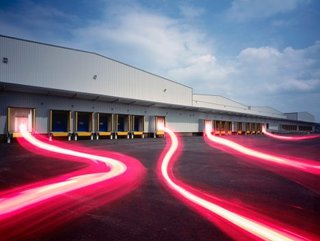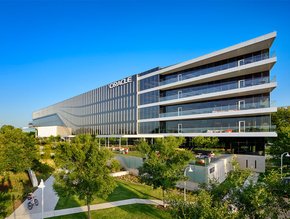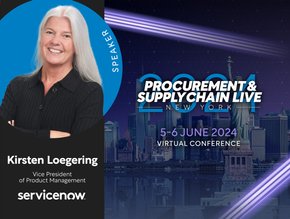How Emerging Tech Became Pivotal to Supply Chain Planning

Supply chain planning and forecasting are clearly essential parts of managing the flow of goods and services from supplier to customer.
These management processes involve developing strategies to optimise sourcing, production, inventory and distribution activities, thus ensuring the right products are available at the right time – while minimising costs and maximising efficiency.
Historically speaking, however, operations planning has struggled to keep up with other business functions from a technological perspective, hindering organisations from responding effectively to changing market dynamics.
But with the dawn of generative AI (GenAI), intelligent automation and other emerging technologies, a new era of supply chain planning beckons.
By prioritising visibility across their entire supply chains, companies can now integrate real-time insights into their planning processes, enabling them to adapt and make adjustments on the fly.
Emerging tech prompts supply chain revolution
‘Revolutionary’ is a word thrown around almost in unbridled fashion these days, but it may just be the best way to describe emerging technologies and their potential impact on supply chain planning and forecasting.
Gary Cassell, Global Manufacturing and Automotive Industry Lead at software giant Appian, says groundbreaking innovations are “fundamentally changing” the way businesses plan, execute and optimise their supply chain operations.
“AI, intelligent automation and data fabric are technologies that enable companies to truly digitise their processes and raise the bar on supply chain management,” he adds.
“In other words, they enable organisations to make real, transformative change in the way they operate their supply chains.”
Harsheen Bali, Senior Manager of Solutions and Strategy at Xebia, a pioneering and proven authority in digital transformation, is in agreement.
“These technologies are essentially encouraging organisations to bring digitisation into their processes and go against the traditional ways of supply chain operations,” she explains. “They are leaving behind manual and paper-based ways and adopting these technologies.”
Companies still held back by legacy systems
We may very well be living in an era dominated by exciting technological innovation, but countless organisations remain reliant on legacy systems which are no longer fit-for-purpose.
Speaking from her experience of working with manufacturing firms in a bid to optimise their operations, Bali says these outdated systems are causing all manner of problems – and ultimately holding them back.
“The first challenge is data fragmentation,” she continues. “When you look at legacy systems they store data in different formats in disparate systems, making it hard to access and analyse information effectively.
“This can lead to all sorts of inefficiencies and errors in making decisions.”
The rigidity of legacy systems is another common headache that Bali has detected. Customisation and modification in response to changing market trends and opportunities is both complex and extremely costly.
She also points to the lack of automation, which is forcing businesses to continue relying on manual processes and paper-based workflows. This is not only time-consuming and has the potential to cause delays, but increases the risk of inaccuracies in order fulfilment, warehouse management and beyond.
Cassell believes the points laid out by Bali boil down to agility – or lack thereof – in the area of planning and forecasting.
“That whole idea of visibility across the supply chain to drive agility and resilience is lost in the legacy world,” he goes on.
“Building agility into supply chain planning and operations requires end-to-end processes – not functionally-siloed processes.”
Barriers to adoption persist
So, if these aforementioned technologies have the potential to bring an array of benefits to supply chain planning, why are so many companies reluctant or slow to adopt?
Bali insists the answer to this question varies from business to business, but lists cost, expected turnaround time, disruption, privacy and security concerns as just some of the main barriers.
“Sometimes it’s more about resistance to change within an organisation, but they don’t see the advantage of the technology and what it brings to the table,” she goes on.
“Once they actually realise what’s on the other side of the table, they essentially see what’s important and what they need to do.”
Cassell notes there still exists considerable variety in the pace of adoption, with many fast-tracking their transition while others fall behind.
What’s certain is that, from a productivity perspective, firms are being left with little option but to take a leap of faith and harness the power of emerging tech like GenAI and automation.
“It’s going to be very important for organisations to prioritise and accelerate their digital transformation efforts because things are going to continue changing,” concludes Cassell.
“Digitisation, and the capabilities, visibility and agility that come with it, is going to be needed in what is a really competitive, ever-changing business landscape.”
******
Check out the latest edition of Supply Chain Magazine and sign up to our global conference series – Procurement and SupplyChain LIVE 2024.
******
Supply Chain Digital is a BizClik brand.
- Gartner: AI set to Dominate Procurement Contract ManagementProcurement
- Accenture: Supply Chain Leaders want more GenAI TrainingDigital Supply Chain
- How the C3 AI Supply Chain Suite Drives Increased ResilienceTechnology
- The Art of Supply Chain Planning with Gartner, SAP, KinaxisSupply Chain Risk Management







